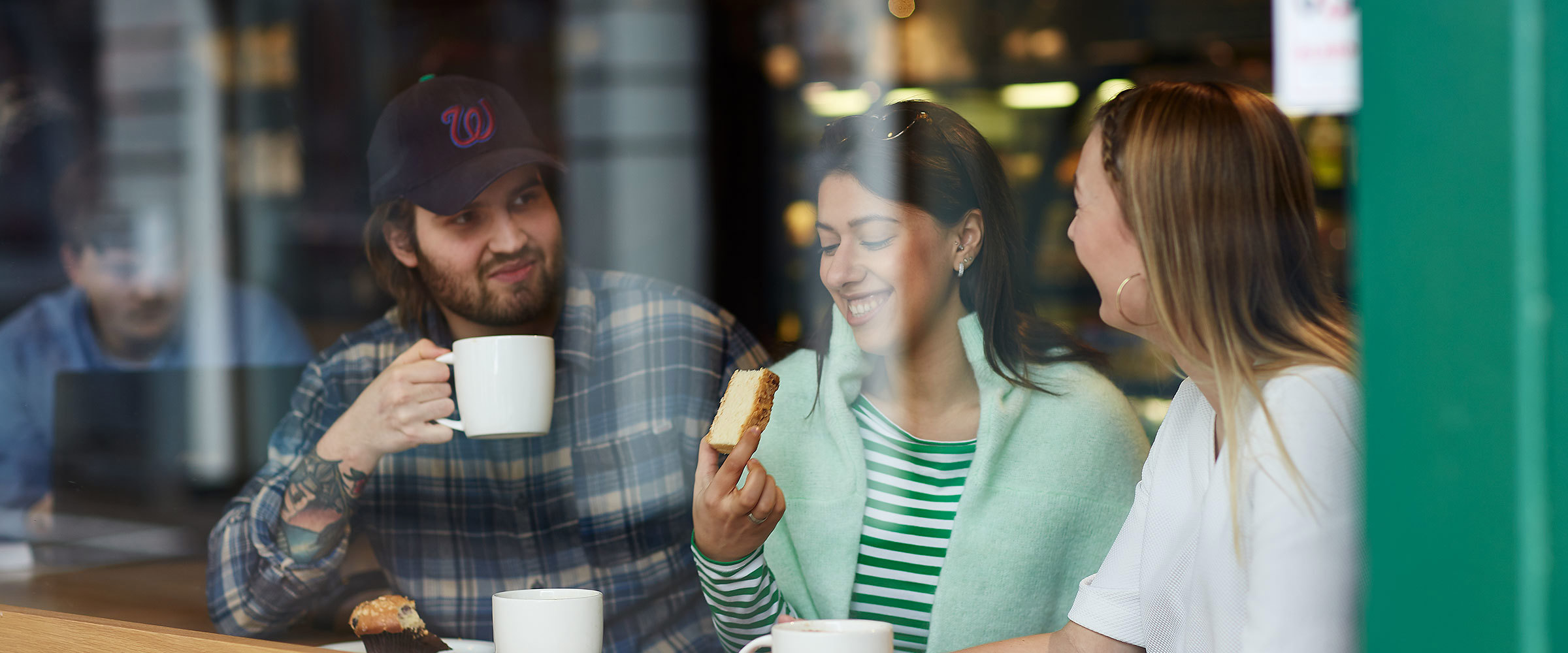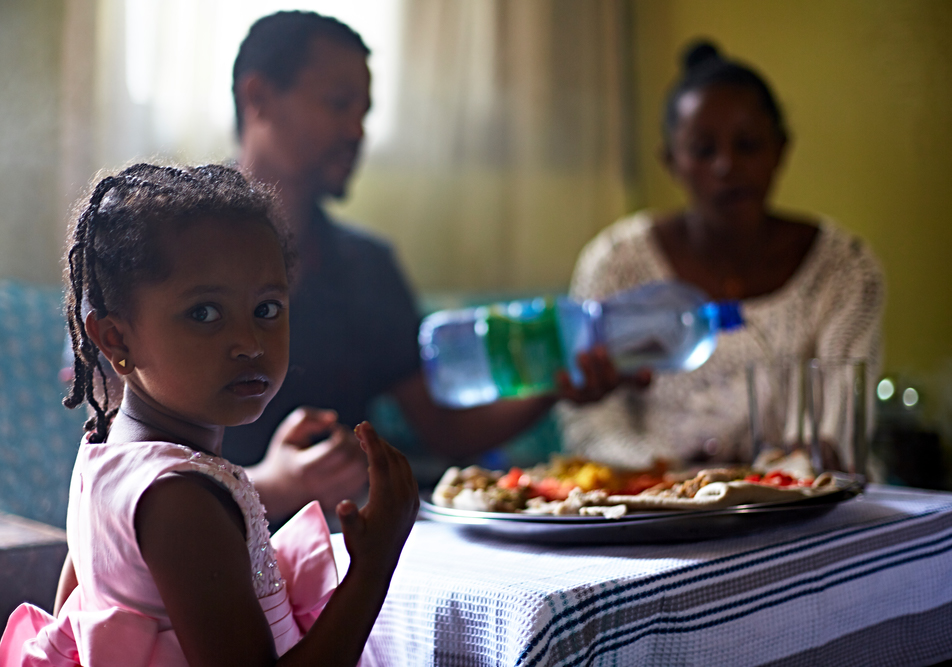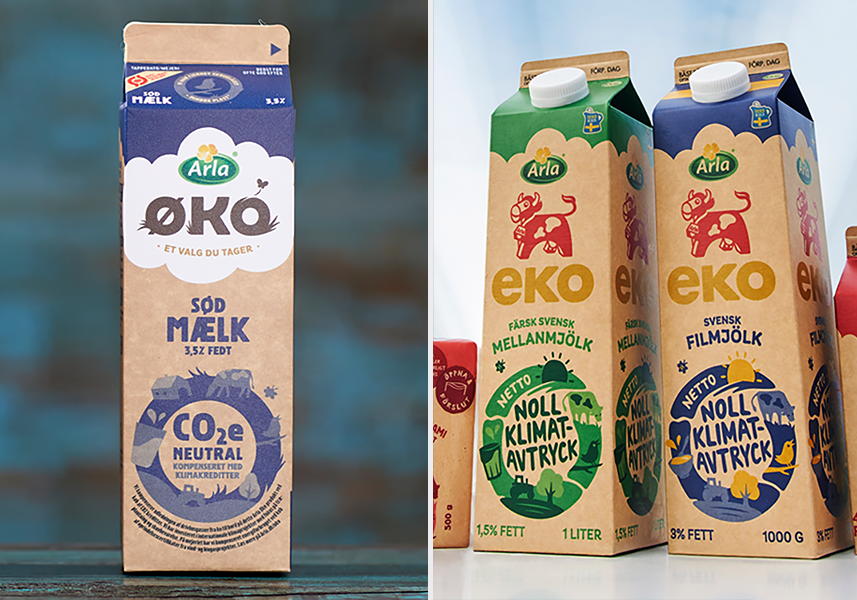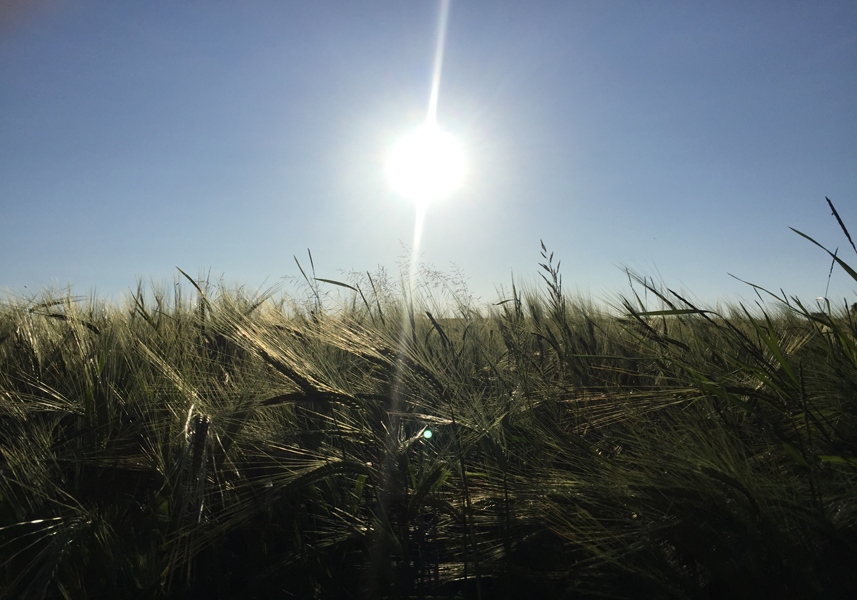We want to leverage our position as the leading international farming cooperative with 9,700 farmers and perhaps the most comprehensive understanding of dairy farming and production in Northern Europe to accelerate the transition to sustainable dairy production. With our new climate ambition towards 2050, we are now taking the next big steps towards sustainable dairy production and carbon net zero dairy.
The young generation of farmers will be absolutely crucial in making this happen, which is why we on March 11th 2019 launched our ambition at an event at Bygholm Farmer College in Denmark. This is the speech I gave at the event:
Ladies and gentlemen, dear farmer students, dear Minister for Higher Education and Science, dear Ambassadors and representatives from the diplomatic corps.
As Chairman of Arla, I am delighted that we are able to co-host today’s event with this highly respected school. I can think of no better location than Bygholm Landbrugsskole for today’s event. A school which has educated generations of Danish farmers, vets and researchers. It has been central in the development of Danish Agriculture - over the past 60 years.
I am a strong believer that if farming - and dairy farming - is to have a bright future, education is critical. Education gives us knowledge and confidence to challenge the way we do things today – to try new ideas and create new solutions for tomorrow.
I didn’t study here myself. I had my farmer education at Kjærgård Landbrugskole near Ribe. But I played football against your school – and we always won the games. At least, that is how I remember it.
Being competitive is – in my opinion - in the nature of a farmer. We may not compete against others - but we are competing against ourselves. We always want to do better.
And that is a good quality - especially for young farmers, who are the farmers of tomorrow.
Having spoken to many young farmers, I am always greatly inspired. By your energy and mindset - your ability to see opportunities - to be creative and progressive.
Therefore, I am convinced the future of dairy is in good hands. And that is great. Because dairy really is an incredible food that can come in many forms.
From a basic glass of fresh milk to advanced whey proteins used in medical nutrition. It provides many nutrients that we need to maintain the body - calcium, protein and vitamin B12.
This is why dairy plays an important role in the challenge of providing nutrition to a global population.
This is recognised by the UN’s Food and Agricultural Organisation FAO.
Since the end of the second world war the focus globally was to increase production - and ensure there was enough food to feed a growing population.
But this focus is changing. We should no longer only be looking at feeding the world - but nourishing the world.
We will be almost ten billion people by 2050 – and everyone needs good food. Dairy is therefore central to achieving the UN’s Sustainable Development Goals. And in Arla we are committed to help deliver these goals.
In particular:
Goal number 2 Zero hunger
Goal number 3 Good health and well-being
Goal number 8 Decent work and economic growth
Goal number 12 Responsible consumption and production
And of course, goal number 13 Climate action
So my starting position is clear. Dairy has so much to offer - and plays an important part of both nourishing the global population - and of creating livelihoods for families across the world.
If we are to maintain this role of dairy - we need to face up to the challenges.
Today I would like to focus on the biggest of these, climate change.
We all know that Green House Gasses are heating the planet up at a dangerous rate. And we know that we need to take action globally - if we are to avoid catastrophic and irreversible climate change.
In October 2018, the Intergovernmental Panel on Climate Change warned that we are getting closer to the point where the consequences of climate change will be irreversible.
As farmers, we are on the front line in the battle with the effects of climate change. If the weather and the environment suffer - we suffer - our businesses suffer - and our families suffer.
Last summer, we had a serious drought. It was a very tough for most of Arla’s farmers - in Sweden, Denmark, the UK and central Europe. When I travel around Arla’s markets and speak to our farmer owners, the weather is one of the main topics. We are all concerned.
I can imagine that young farmers are even more so. Because the challenges will only grow in the years to come.
We must be honest with ourselves and acknowledge that farming also contributes to Green House Gas emissions. According to FAO, livestock production contributes around 18% of global greenhouse gas emissions. Dairy contributes 3%.
Although dairy farming is not the biggest emitter, we all have a responsibility as farmers to do our part to reduce emissions. And we have our own high expectations that we should be part of the solution, not just the problem.
And we believe that we are. Arla has already worked with this for years. Since 1990, Arla farmers have reduced emissions per kilo of milk by 24 per cent.
Today, dairy farmers in Arla - and in Northern Europe - are among the very best to operate efficient farms. The emissions of a litre of milk produced here is about half of the global average.
This is a strong evidence of our ability to act and drive change.
But if we want a bright future for the dairy industry we need to go further and faster to help fight climate change. We need to look at this in the same way that the young farmers do: As an opportunity. Not only to be part of the solutions to climate change – but also to take the lead in finding the solutions.
And that is why today, Arla is taking a huge next step forward by announcing our climate targets. As a dairy cooperative with over 9,900 farmers in seven European countries, we can have significant impact.
Our ambition is to deliver a 30% reduction in greenhouse gas emissions per kilo of milk by 2030 - and to produce carbon net zero milk by 2050.
This means that you will be able to drink a glass of Arla milk knowing that the sum of what we have done – positive and negative - has in total not contributed to any additional warming of the climate.
We have defined our climate target and other environmental targets using inputs from university researchers and NGO’s in Sweden, Denmark, Germany and the UK. We have been guided by the Science Based Targets initiative to contribute to the Paris agreement.
No doubt, it is a huge ambition.
I don’t underestimate how challenging this will be for us. And I understand that sometimes the challenge looks and feels so great that you can’t see a way forward. And doing nothing seems easier than taking action.
But that is not who we are. I believe we can - and will - do this.
Because we are Arla.
We are a dairy cooperative - owned by farmers - and we face challenges head-on and take action.
In the 1880s, farmers with little money and great visions joined forces and started small cooperatives. Since then, these cooperatives grew and merged from districts to regions, across the country and finally across borders.
Arla is built from nothing but the farmers’ own money and their will to work together - to stand stronger. Whenever we have built new dairies, delivered innovation and entered new countries, we have done it with our own money - and succeeded together with our employees.
We have always had ambitions - and we never leave the future up to others. And this is how we will work towards Carbon Net Zero Dairy as well. We will not leave it up to others. We are leaning into the challenge.
And there are actually a lot of things that we are already doing – and can do more of - as the first next steps.
Let me mention a few examples:
- We can incorporate the manure better into the soil to reduce the loss of nitrogen.
- We can produce even more renewable energy on our farms – with solar panels, biogas or wind turbines.
- Currently the electricity produced on Arla farms equals 61% of our total electricity used on Arla farms.
- If we continue to optimise the feed production, we can reduce waste and reduce the amount of methane from the cows.
There are more areas and still so much more to understand. Therefore, Arla is investing in research projects to gain more scientific knowledge.
Sustainability from a business perspective is all about efficiency - and about refining our farm management.
For the farmer, a key enabler is to understand where the farm’s main climate impact is and how it can be reduced. We have had almost 700 meetings on farm to educate farmers on sustainability. And more than 5,000 climate checks have been conducted on Arla farms.
I have personally used our Climate Check tool to identify my farms’ potential for CO2 reductions. It is highly motivating because reducing CO2 often leads to cost savings.
A test has shown that reducing the carbon emissions from 1.25 kilo per litre of milk to 0.85 kilo can reduce the production cost per litre by 12%. There is real money in this. For our own bottom line.
And we think the consumers also want to reward us by paying a little more for more sustainable products. Let’s see.
We have started to work with a group of progressive farmers in both Denmark and Sweden. They are leading the way on climate, animal welfare and farm management.
They will be examples of how much can be done - and how far we can push the frontier. We will bring their milk to market this year with the Arla 24 brand in Denmark and the Arla Cow in Sweden.
In our business operations we are also stepping up our transformation to more sustainable operations - using non-fossil fuels, renewable energy, sustainable packaging and less waste. And we will introduce many new initiatives during 2019.
So we may be standing on a burning platform today. But we have an opportunity to ensure the long term viability and profitability of our industry.
As we stand here today we don’t have all the answers to how we will deliver carbon net zero. And that is okay.
One thing is certain we can’t do this alone. We will call on our farmer colleagues, not least the young generation of farmers like you, and we call on the industry, academic institutions, and governments for collaboration and ideas, that will support the transition.
The dairy sector - the whole farming sector - needs to look outside itself to find partners who can help deliver the new technology, the new thinking and the new innovations across the value chain that are needed.
We also need to help governments with our practical knowledge from the farms to create the right policy environment for sustainable farming. This needs to support investments in green technology - like biogas production from manure - and methane reduction.
We need the European Common Agricultural Policy to incentivise sustainable farming practices - while still giving farmers the financial security to produce high quality food. And for our UK farmers, we need the UK’s agricultural policy to get the balance right as well – even if they are not part of the European Union going forward.
We need continued investment in research into more sustainable production methods and we need collaboration between research institutes.
In 10-20-30 years we will have new knowledge and new solutions that we can’t even imagine today. This will also help farmers in other areas of the world where the potential is even bigger.
For you students here today - you will be part of making this change happen. Some of you will even lead the industry as it takes the necessary steps towards a carbon net zero future.
Therefore, my call to you students at this school - and all agricultural schools around Europe - is to learn as much as you can. Keep learning when you leave school. Keep getting smarter. Keep pushing yourself, your fellow farmers and everyone else who might be able to help.
Engage yourself.
Discuss with each other, lean in to the challenges and keep pushing the boundaries.
We need you. The world needs you to help us stay at the forefront of sustainable farming practices - and have the knowledge to push the frontier of what is possible.
Dear farmer students, ladies and gentlemen.
Today is not the beginning of our journey towards carbon net zero dairy. We started a long time ago. But today is the first day of the journey going forward – a journey that many of you in this room today will be part of in the years to come.
Join us in creating the future of dairy!
Thank you.



